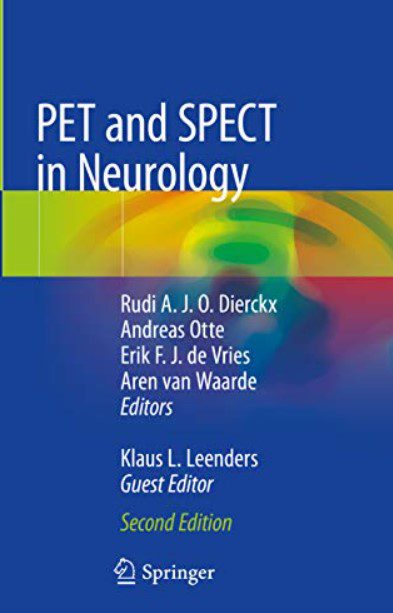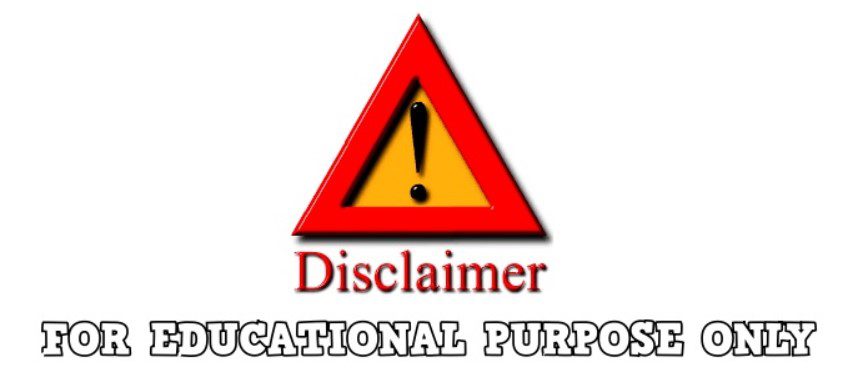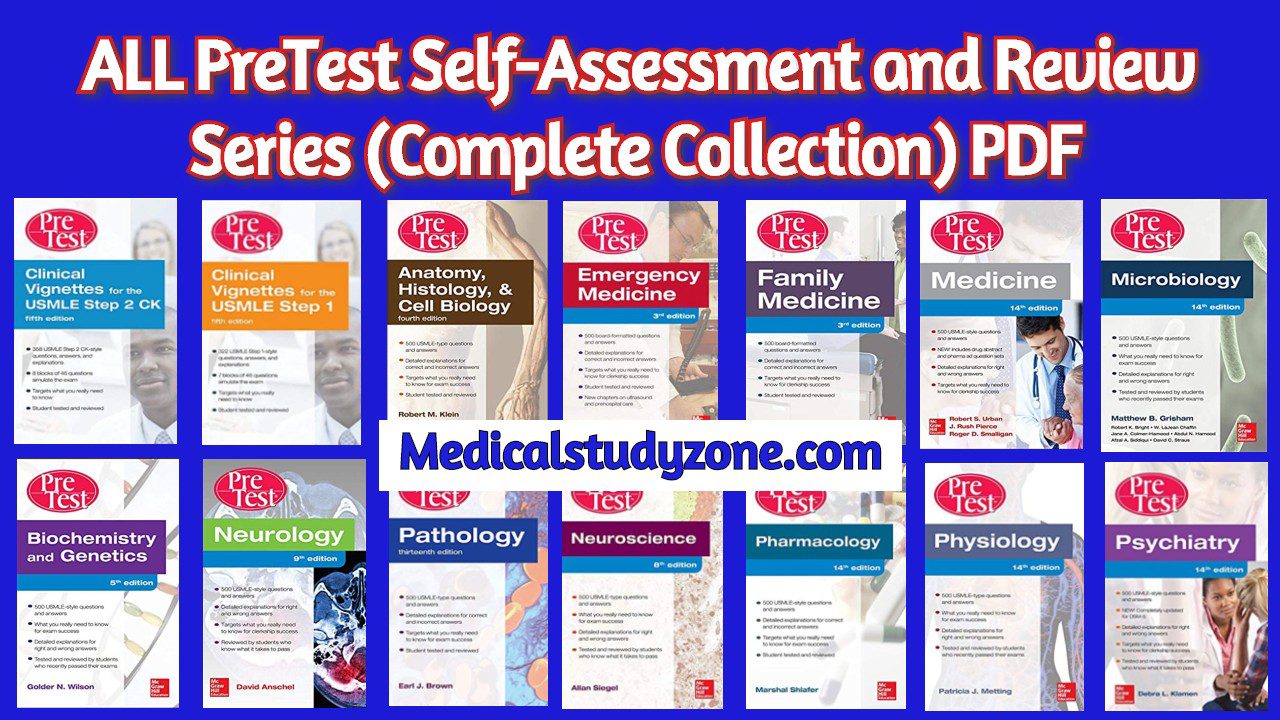In this blog post, we are going to share a free PDF download of PET and SPECT in Neurology 2nd Edition PDF using direct links. In order to ensure that user-safety is not compromised and you enjoy faster downloads, we have used trusted 3rd-party repository links that are not hosted on our website.
At Medicalstudyzone.com, we take user experience very seriously and thus always strive to improve. We hope that you people find our blog beneficial!
Now before that we move on to sharing the free PDF download of PET and SPECT in Neurology 2nd Edition PDF with you, here are a few important details regarding this book which you might be interested.

Overview
PET and SPECT in Neurology 2nd Edition PDF is one of the best book for quick review. It is very good book to study a day before your exam. It can also cover your viva questions and will help you to score very high.
You might also be interested in:
Patient Compliance: Sweetening the Pill PDF Free Download
Assessment of Communication Disorders in Adults 2nd Edition PDF Free Download
In Vivo NMR Spectroscopy: Principles and Techniques 3rd Edition PDF Free Download
Fast Facts for the Hospice Nurse PDF Free Download
Download Handbook of Attachment: Theory, Research, and Clinical Applications 3rd Edition PDF Free
Features of PET and SPECT in Neurology 2nd Edition PDF
Following are the features of PET and SPECT in Neurology 2nd Edition PDF:
This book provides a comprehensive overview of the use of PET and SPECT in not only classic neurodegenerative disorders but also cerebrovascular disorders, brain tumors, epilepsy, head trauma, coma, sleeping disorders, and inflammatory and infectious diseases of the CNS. The new edition has been revised and updated to reflect recent advances and includes additional chapters, for example on the use of artificial intelligence and machine learning in imaging data analysis, the study of brain connectivity using PET and SPECT images, and the role of PET imaging in modulation of brain functioning by deep brain stimulation. The authors are renowned experts whose dedication to the investigation of neurological disorders through nuclear medicine technology has achieved international recognition. Most chapters are written jointly by a clinical neurologist and a nuclear medicine specialist to ensure a multidisciplinary approach. This state of the art compendium will be invaluable for neurologists and radiologists/nuclear medicine specialists and will also be informative for interested general practitioners and geriatricians. Companion volumes on PET and SPECT in psychiatry and in neurobiological systems complete a trilogy.
User’s Review:
Editorial Reviews: From the Back Cover This book provides a comprehensive overview of the use of PET and SPECT in not only classic neurodegenerative disorders but also cerebrovascular disorders, brain tumors, epilepsy, head trauma, coma, sleeping disorders, and inflammatory and infectious diseases of the CNS. The new edition has been revised and updated to reflect recent advances and includes additional chapters, for example on the use of artificial intelligence and machine learning in imaging data analysis, the study of brain connectivity using PET and SPECT images, and the role of PET imaging in modulation of brain functioning by deep brain stimulation. The authors are renowned experts whose dedication to the investigation of neurological disorders through nuclear medicine technology has achieved international recognition. Most chapters are written jointly by a clinical neurologist and a nuclear medicine specialist to ensure a multidisciplinary approach. This state of the art compendium will be invaluable for neurologists and radiologists/nuclear medicine specialists and will also be informative for interested general practitioners and geriatricians. Companion volumes on PET and SPECT in psychiatry and in neurobiological systems complete a trilogy. –This text refers to the paperback edition. About the Author Rudi Dierckx studied medicine and neuropsychiatry at the Free University of Brussels. He was trained as a nuclear medicine physician at the University of Antwerp (1988-1994). Rudi has headed the Department of Nuclear Medicine at the University Hospital of Ghent (Belgium) from 1994 to 2004, and has acquired a Master of Business Administration (MBA) at the Vlerick School of Management in Leuven (2004, cum laude). Since 2005 he is Head of the Department of Nuclear Medicine and Molecular Imaging at University Medical Center Groningen (UMCG) in The Netherlands. Since 2013, he is also Head of the Medical Imaging Center, and Chairman ad interim of the Department of Radiology at UMCG. His primary research interests are PET studies of the human brain. Andreas Otte, MD, is a board-certified specialist in Nuclear Medicine and Professor of Biomedical Engineering in the Division of Medical Engineering, Department of Electrical Engineering, Medical Engineering and Computer Science, Offenburg University, Germany. Prof. Otte received his graduate and post-graduate medical education at the University Hospitals Freiburg, Germany, and Basle, Switzerland, and at the Paul Scherrer Research Institute in Villigen, Switzerland. Thereafter he held various leading positions in clinical research with Pfizer in Freiburg, Germany (International Medical Research, Pfizer Global Pharmaceuticals) and at the University Hospital Freiburg. From 2002 to 2009 he was Visiting Professor of Nuclear Medicine in the Medical Faculty of the University of Ghent in Belgium. He took up his present position in 2010. Andreas Otte is the author of many peer-reviewed journal articles and the author or editor/co-editor of a number of books. His research focus is on neurosciences including functional neuroimaging, brain-machine-interfaces, and intelligent neuroprosthetics. Awarded a series of international scientific prizes, he was nominated Editor of the Board of the European Journal of Nuclear Medicine (1998-2003) and the Hellenic Journal of Nuclear Medicine (since 2003). Erik de Vries graduated in chemistry (cum laude) at the University of Leiden (The Netherlands) in 1991 and obtained his PhD in natural sciences at the same university in 1995. After a short project as a chemist at the pharmaceutical company Gist-Brocades in Delft, the Netherlands, he moved to the University Medical Center Groningen in 1996, where he is still working as a Professor at the Department of Translational Molecular Imaging. Since 2007, he is the research coordinator of this department. Erik was also guest lecturer in molecular and diagnostic imaging at the University Sapienza in Rome, Italy from 2007 to 2013. He has a special interest in the development and application of radiopharmaceuticals for PET imaging of inflammation and tumor drug targets. Aren van Waarde studied animal physiology and received a PhD degree from Leiden University in the Netherlands. He worked as a postdoctoral research associate in the Department of Molecular Biophysics and Biochemistry at Yale University (1986-1988). After his return from the US, he was appointed in Leiden as a Fellow of the Royal Dutch Academy of Sciences and worked on in vivo NMR spectroscopy of aquatic animals. For this research he received an award (C.J.Kok prize, Leiden University). Since 1991 he is a member of the permanent staff of the Department of Nuclear Medicine and Molecular Imaging (formerly: PET Center) at the University Medical Center Groningen (Netherlands), and is involved in the preclinical evaluation of novel radiopharmaceuticals. His primary research interests are PET studies of receptors in the brain and the use of PET to examine the mechanism(s) of action of CNS drugs.Nico (Klaus L) Leenders studied medicine at the University of Amsterdam. He was certified as a neurologist in 1980, after practical training in Amsterdam and Utrecht. For postgraduate training he moved to London (UK), where he worked at the National Hospital for Nervous Diseases (Queens Square, 1980-1981) and was subsequently employed as a Research Fellow at the MRC Cyclotron Unit of Hammersmith Hospital (1982-1984) and as Senior Registrar Neurology at the Royal Postgraduate Medical School (1984-1988). He defended a thesis about positron emission tomography of movement disorders at the Free University of Amsterdam in 1986 and acquired the PhD degree “cum laude”. From 1988-1998, Nico was clinical head of the PET group at Paul Scherrer Institute (Villigen, Switzerland) and from 1990-1998 Privat-Dozent (later Titular-Professor and Head of the Movement Disorders Clinic) at the Department of Neurology, University Hospital Zürich (Switzerland). Since 1998, he is Full Professor of Neurology at the University Medical Center Groningen (The Netherlands). The research of Prof. Leenders has focused on research and clinical applications of PET concerning movement disorders and other neurodegenerative diseases of the human brain. –This text refers to the paperback edition.
Download PET and SPECT in Neurology 2nd Edition PDF Free:
Now you can download PET and SPECT in Neurology 2nd Edition PDF from Medicalstudyzone.com below link:
Basic Information:
- Year: 2020
- Page Number: 2401 pages
- File Type: PDF
- File Size: 37,57 MB
- Authors/ Editiors: Rudi A. J. O. Dierckx

Disclaimer:
This site complies with DMCA Digital Copyright Laws. Please bear in mind that we do not own copyrights to this book/software. We are not hosting any copyrighted contents on our servers, it’s a catalog of links that already found on the internet. Medicalstudyzone.com doesn’t have any material hosted on the server of this page, only links to books that are taken from other sites on the web are published and these links are unrelated to the book server. Moreover Medicalstudyzone.com server does not store any type of book, guide, software, or images. No illegal copies are made or any copyright © and / or copyright is damaged or infringed since all material is free on the internet. Check out our DMCA Policy. If you feel that we have violated your copyrights, then please contact us immediately. We’re sharing this with our audience ONLY for educational purpose and we highly encourage our visitors to purchase original licensed software/Books. If someone with copyrights wants us to remove this software/Book, please contact us. immediately.
You may send an email to [email protected] for all DMCA / Removal Requests.

![ALL MBBS Books PDF 2026 - [First Year to Final Year] Free Download ALL MBBS Books PDF 2022 - [First Year to Final Year] Free Download](https://medicalstudyzone.com/wp-content/uploads/2022/06/ALL-MBBS-Books-PDF-2022-First-Year-to-Final-Year-Free-Download.jpg)




![All First Aid Book Series PDF 2025 Free Download [36 Books] All First Aid Book Series PDF 2020 Free Download](https://medicalstudyzone.com/wp-content/uploads/2020/07/All-First-Aid-Book-Series-PDF-2020-Free-Download.jpg)

Leave a Reply